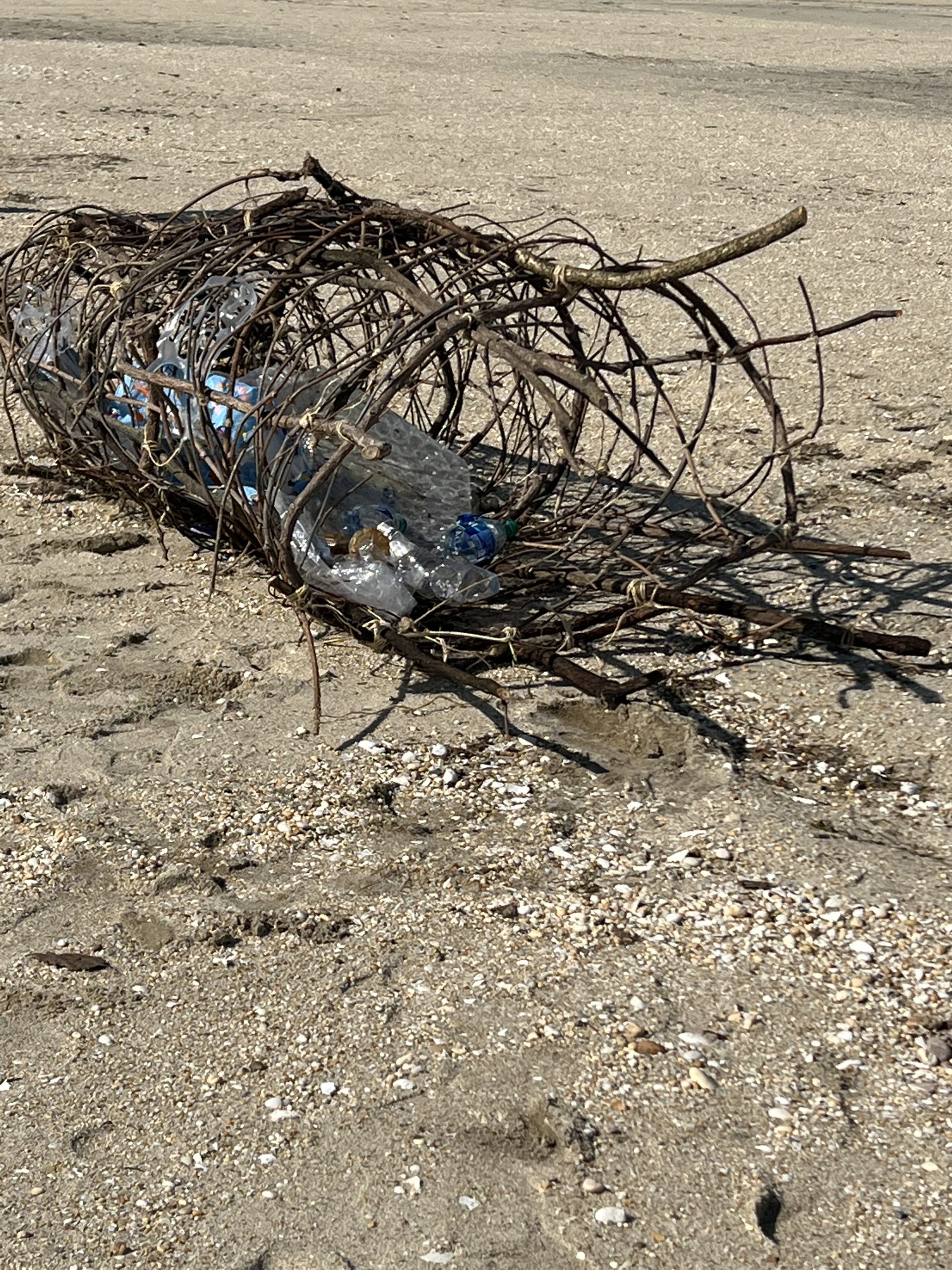This Spring, Discovering the Ecological Self collaborated with the Monmouth University Climate Teach-In. Throughout the spring semester, DEcoSelf participants attended several Climate Teach In’s, where they learned about current climate crisis issues. The Teach-in, organized by Dr. Catherine Duckett, aimed to ” generate discussion about climate impacts and solutions with the goal of improving life for humans and other living things”. Using the knowledge gained from attending these events, participants brainstormed on how they could aid in mediating the climate crisis locally while educating their peers using Social Practice Art.

As part of the Climate Teach-In, Dr. Catherine Duckett gave this year’s DEcoSelf participants, AR-218 Scultpure II, students a presentation on the importance of native species, and how planting native plants support a variety of bird and insect groups. However, a major part of planting native plants is to first clear out non-native invasive species. Nonnative plants reproduce aggressively and spread from their planting sites, threatening native plants and the climate. Non-native species are not able to provide the right food or habitat for local species causing a negative impact on the ecosystem. Dean Duckett made students aware that the biggest invasive plants in NJ are the following:
• Oriental Bittersweet • Asian Honeysuckle
• Porcelain Berry • Japanese Knotweed
• English Ivy • Oriental Bittersweet
• Multiflora Rose • Porcelain Berry
Photographs and other ways to identify these plants are listed in the resources below, so if you have one of these plants in your yard, you can take action against the climate crisis now by removing them and replacing them with native plants.
For their social practice artwork, the students decided to focus on creating awareness of the climate crisis by clearing out invasive vine species and beach plastics and creating a sculptural object with the resulting waste. Invasive vine species cause costly economic and ecological damage each year including crop decimation, clogging of water facilities and waterways, wildlife and human disease transmission, threats to fisheries, increased fire vulnerability, and adverse effects for ranchers and farmers. Students were able to clear out an abundant amount of invasive vines at Van Court Park, including Porcelain Berry (Ampelopsis brevipedunculata), Oriental Bittersweet (Celastrus orbiculatus), and Multifloral Rose (Rosa multiflora).
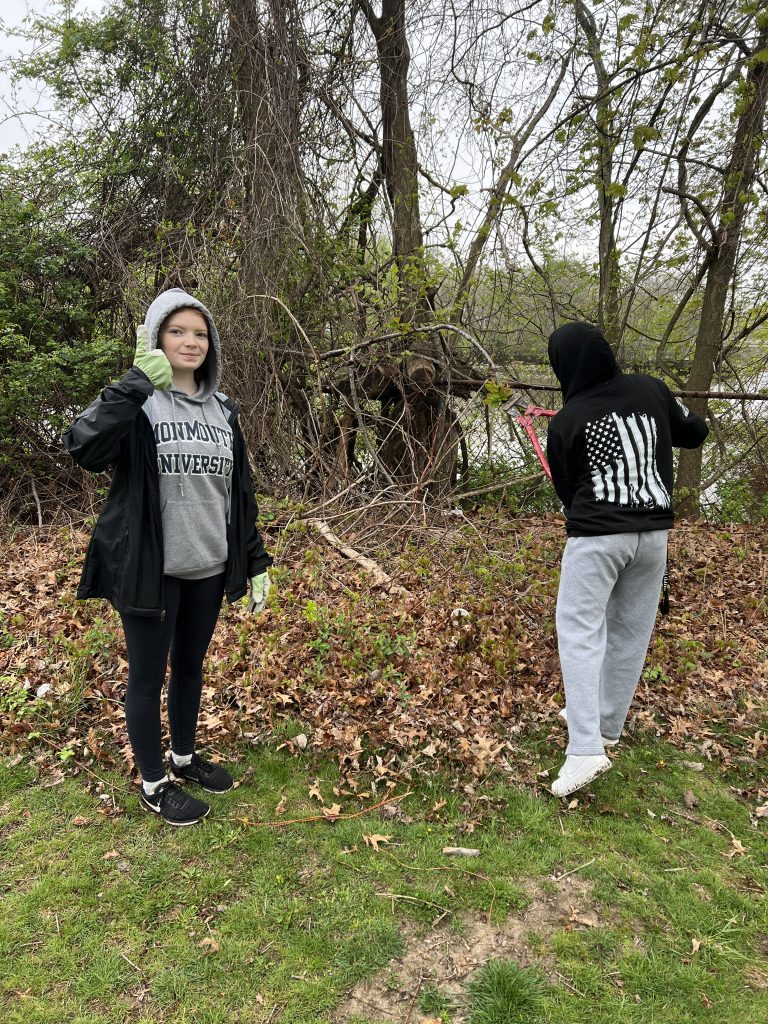
“I remember hearing and making comments such as “We just saved this tree’s life” which left a rewarding feeling inside myself and others. It feels good to be helping nature and doing a small part of something good for our community and hopefully inspiring others to do so, or do so more often, in our community.”
– AR-218 student, Alexis Mangino
For their social practice artwork, the students decided to focus on creating awareness of the climate crisis by clearing out invasive vine species and beach plastics and creating a sculptural object with the resulting waste. Invasive vine species cause costly economic and ecological damage each year including crop decimation, clogging of water facilities and waterways, wildlife and human disease transmission, threats to fisheries, increased fire vulnerability, and adverse effects for ranchers and farmers. Students were able to clear out an abundant amount of invasive vines at Van Court Park, including Porcelain Berry (Ampelopsis brevipedunculata), Oriental Bittersweet (Celastrus orbiculatus), and Multifloral Rose (Rosa multiflora).
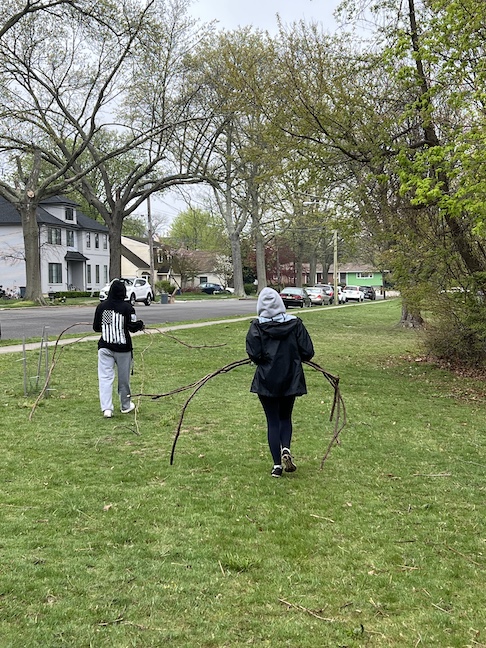
At first, it was thought that the vines could be used to make a giant net, which reminded students of ways of fishing they had previously learned about during the Teach-Ins. While examining the collected vines and brainstorming what to use them for, students focussed on the threats of overfishing and the importance of sustenance fishing. Overfishing endangered ocean ecosystems and the billions of people who rely on seafood as a key source of protein. Without sustainable management, our fisheries face collapse and we face a food crisis. Although a widespread issue, many seem to dismiss the effects of overfishing, along with another detriment to our food source, ocean pollution. According to marine biologist Ayana Elizabeth Johnson, “Unsustainable, unregulated fishing is a human rights disaster… and the archipelagic New York City, once surrounded by more than 40 square kilometers of wetlands and by oysters so abundant they were a navigational hazard, is now unprotected”. To aid in the stopping of ocean pollution, students collected plastics from beaches in Monmouth County, focussing on access sites- where there is a heavy concentration of plastics, especially water bottles. These were later used in the handmade traditional fish trap.
To bring attention to a climate crisis social justice issue, the students chose to use the collected invasive vines to create a traditional fish trap. Traditionally, fishing traps are made from natural materials found around people’s homes – reeds, twigs, bamboo, and palm leaf fibers. These traps are as effective as a simple fishing rod which many of the locals can also be seen using on the embankment of the river and which simply consist of a long twig, a piece of string, and a hook. Students watched videos and read articles to educate themselves about the origin and use of fish traps and learn how to weave natural materials together. The thicker branches from the Porcelain Berry plant were used as a foundation structure for the trap, and thinner Oriental Bittersweet vines were trimmed and tied to the foundation with twine. The invasive vines were crafted by students into an aesthetic, yet delicate traditional fish trap.
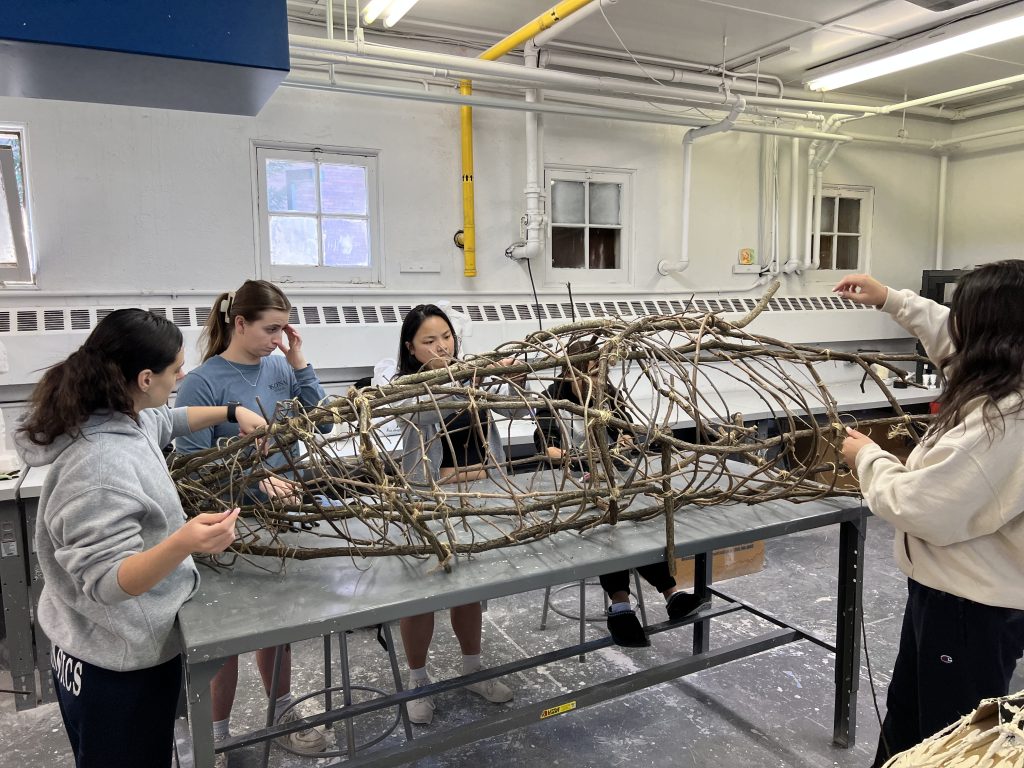
Using the fish trap as a metaphor, this public artwork demonstrates the consequences of the climate crisis when what’s caught in the trap is sea plastics instead of fish.
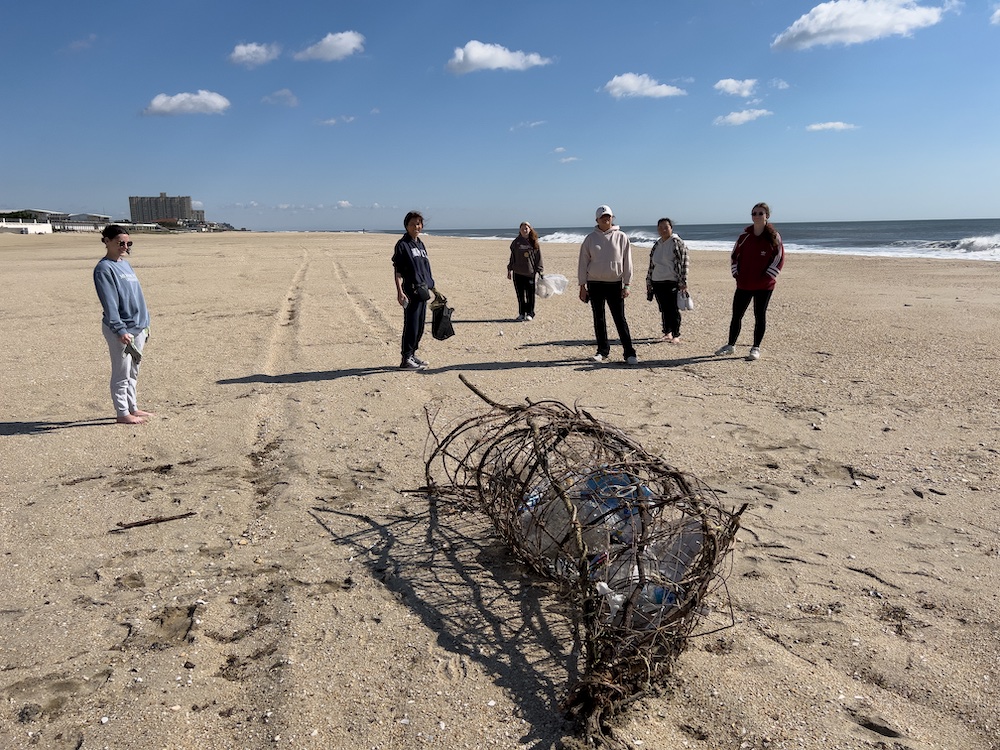
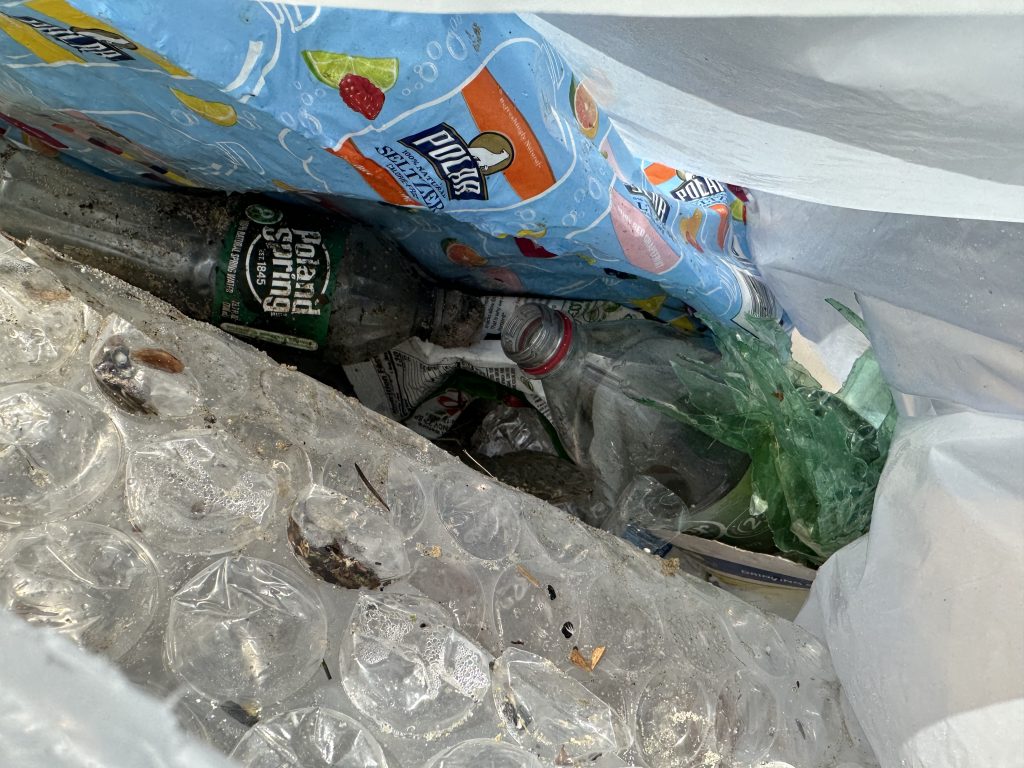
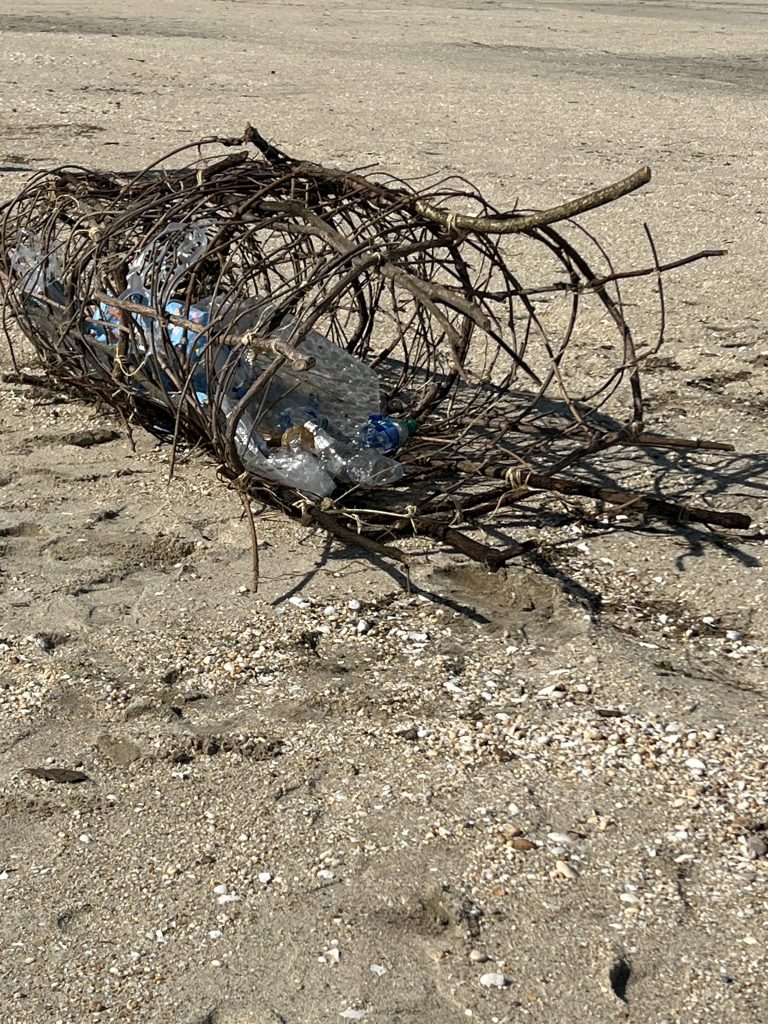
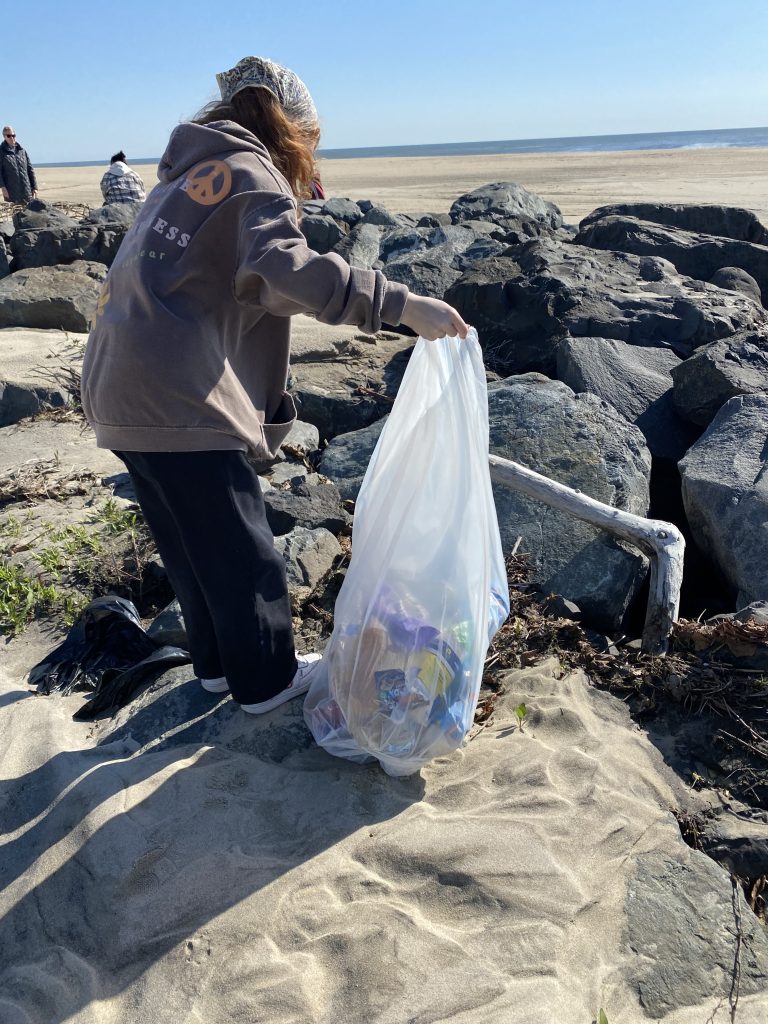
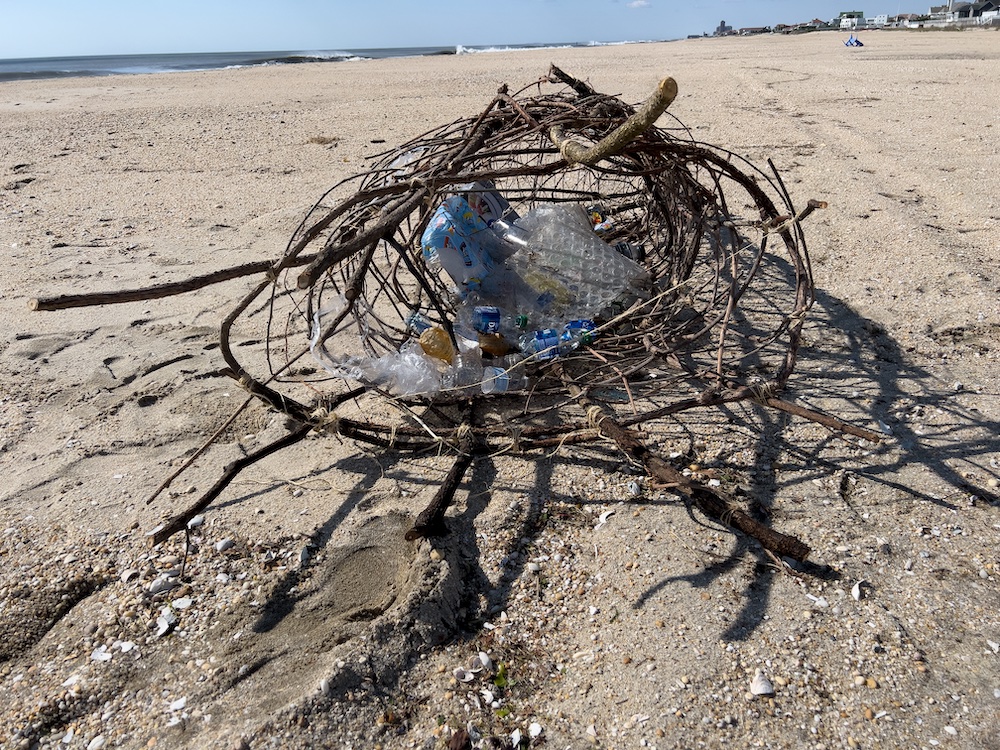
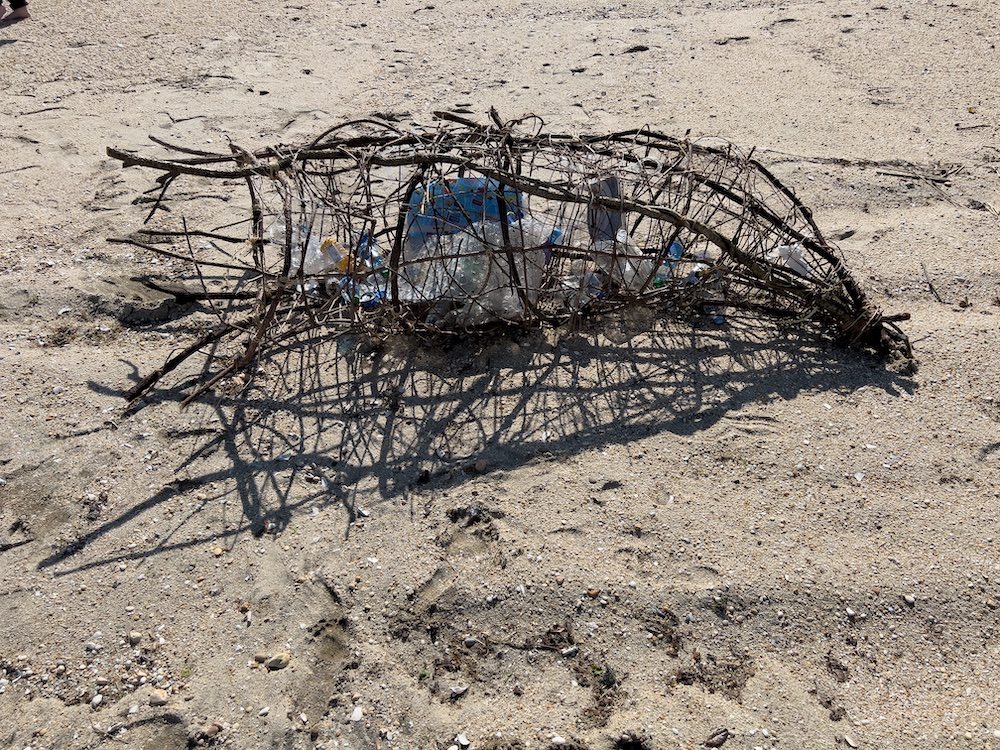
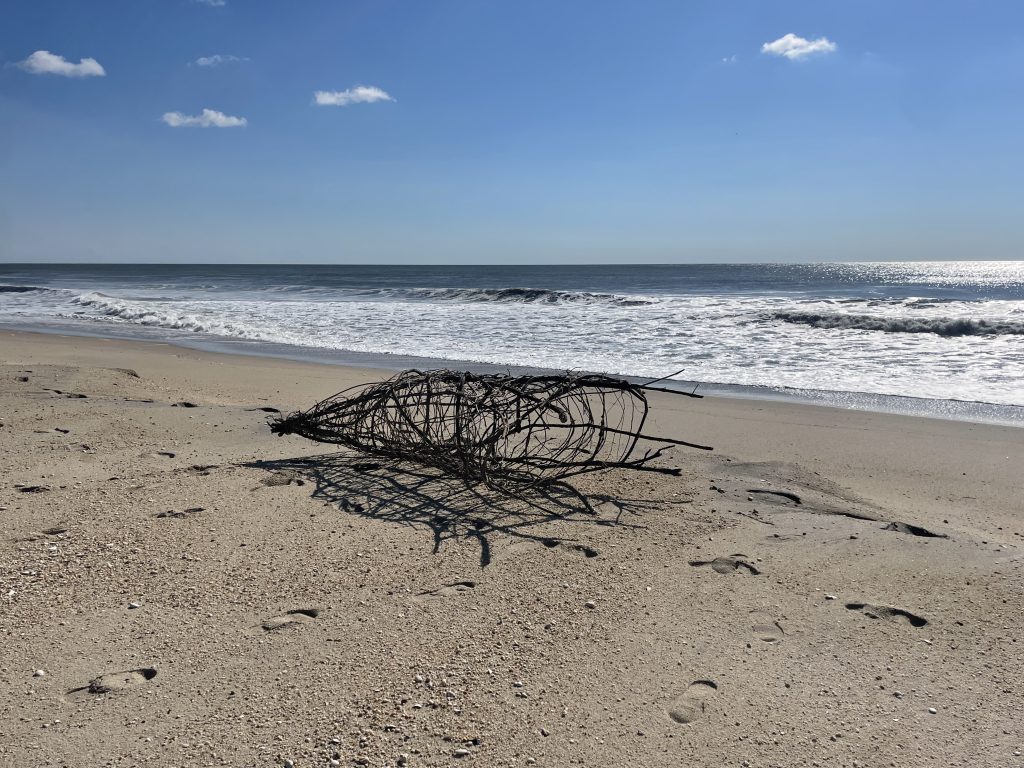
The devastating impacts of the climate crisis are already being seen in our local communities, and through their social practice work, the students are hoping to be a predecessor for change. You can also be a predecessor for change, by clicking the links below and seeing how you can act now.
Write to support the passing of the invasive species bill to Frank Pallone (U.S. representative for New Jersey’s 6th congressional district):
The New Jersey invasive species bill, S-2186/A-3677, sponsored by senators Bob Smith and Linda Greenstein, includes an initial list of invasive plants that could only be sold or cultivated with a permit from the state Department of Agriculture. To read the bill as it currently stands, go to:
www.njleg.state.nj.us/bill-search/2022/S2186
To learn more about invasive species, go to the strike team website at
www.fohvos.info/invasive-species-strike-team/info-center/
Resources on how the climate crisis affects us are listed below, along with how you can help:
Monmouth University’s Climate Crisis Teach-In:
https://www.monmouth.edu/school-of-science/climate-crisis-teach-in-2023/
Why Plant Native Plants:
https://news.maryland.gov/dnr/2019/01/02/habichat-native-birds-plants/
What I Know About the Ocean:
https://www.sierraclub.org/sierra/future-oceans-environmental-justice-climate-change
Inspired by “Don’t Look Up”: Act Now on Climate Change | United Nations | Netflix
https://www.youtube.com/watch?v=hakqRofpMFs&feature=youtu.be
United Nations Global Goal 13: Climate Action
https://sdgs.un.org/goals/goal13
United Nations Global Goal 14: Life Below Water
https://sdgs.un.org/goals/goal14
Special thanks to Dr. Catherine Duckett for making this project possible.
-Dr. Catherine Duckett has planted 61 trees in her local community, private and public.
-She has created wildflower gardens at local schools.
-Runs climate teach-in lectures, teaching others about relevant issues.
-She has an example of no lawn. Homegrown natural park link.
-Native plant plants for free.
-Shades of green permaculture-free plans.

